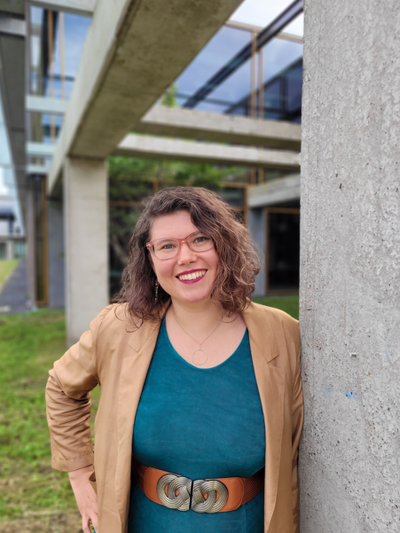Implementing Climate Change Adaptation through Mainstreaming and Collective Action at the Local Level
Franziska Baack is a PhD student in the Department Integrated Project Delivery. (Co)Promotors are prof.dr.ir. J.I.M. Halman and dr.ir. J. Vinke-de Kruijf form the Faculty of Engineering Technology and prof.dr. S.M.M. Kuks and dr. G. Özerol from the Faculty of Behavioural, Management and Social Sciences.
 Preventing the rising human and economic cost of the impacts of accelerating climate change requires adaptation. As many climate impacts are local, adaptation at the local level is necessary, with cities having taken up an active role in adaptation implementation. However, current adaptation efforts lag far behind the needs to address current and predicted climate impacts. Catching up thus necessitates the acceleration of adaptation implementation. This dissertation focuses on mainstreaming of adaptation, namely the integration of adaptation into various public and private sector processes, policies, and projects, as well as action perspectives on the collective effort of adaptation as key strategies to accelerate adaptation. While mainstreaming offers several benefits on paper and addressing adaptation as a collective action problem has been acknowledged, their contributions to adaptation implementation remain underexplored.
Preventing the rising human and economic cost of the impacts of accelerating climate change requires adaptation. As many climate impacts are local, adaptation at the local level is necessary, with cities having taken up an active role in adaptation implementation. However, current adaptation efforts lag far behind the needs to address current and predicted climate impacts. Catching up thus necessitates the acceleration of adaptation implementation. This dissertation focuses on mainstreaming of adaptation, namely the integration of adaptation into various public and private sector processes, policies, and projects, as well as action perspectives on the collective effort of adaptation as key strategies to accelerate adaptation. While mainstreaming offers several benefits on paper and addressing adaptation as a collective action problem has been acknowledged, their contributions to adaptation implementation remain underexplored.
To address these knowledge gaps, this dissertation explores the case of mid-sized municipalities in the Netherlands with the objective to increase understanding of adaptation and mainstreaming at the local level and to identify action perspectives for accelerating adaptation and closing implementation gaps. To fulfill the research objective, a holistic in-depth multiple case study approach in the first half of the dissertation explores and explains the contributions of mainstreaming to local level implementation and highlights its shortcomings in Enschede and Zwolle. An action-oriented single case in Deventer combined with a municipal level survey contributes to bridging the science-policy gap regarding heat adaptation. And lastly, an embedded case study of project level adaptation implementation and household adaptation in Enschede explores the collective action problem of adaptation implementation.
In conclusion, municipalities in Overijssel have been adapting to climate change for a few years, but thus far a holistic approach to adaptation that also considers future climate change beyond 2050 remains absent. While green-blue measures arrived in the mainstream of Dutch spatial development, this narrow focus obscures that especially heat and drought adaptation require mainstreaming in sectors beyond public spaces, such as housing, health care, and social services. Similarly, municipalities understand adaptation is a collective action problem, but approaches for other actors remain vague and mostly voluntary.
To address the local adaptation challenges hindering implementation, firstly, more systemic mainstreaming of adaptation into all sectors and considering all impacts is necessary to prevent predatory adaptation. Secondly, effective heat stress management strategies that center the needs of vulnerable populations, such as the elderly, children, and the poor need to be planned and implemented. Lastly, establishing consistent monitoring and evaluation and institutionalizing reflective practices as part of local adaptation approaches can ensure the ongoing consideration of changing climate scenarios and demographic developments. Local level adaptation is a complex puzzle that requires collective action from municipalities, public and private sectors, and inhabitants to keep our cities livable.





